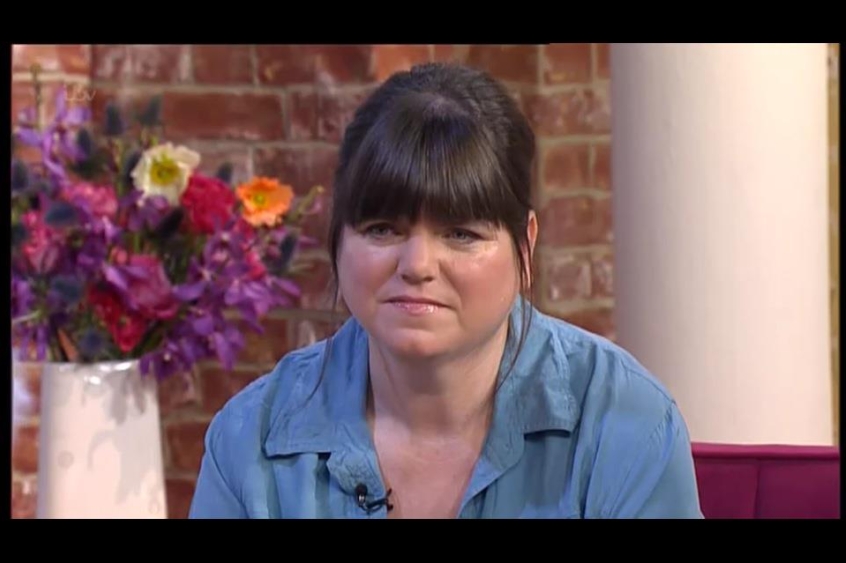
Jill Saward was at home with her husband Gavin, sitting down on the floor to work on her laptop, when she fell. She seemed OK at first, but then complained of a vice-like pain in her head so Gavin called 111 and an ambulance quickly arrived. Paramedics were with her when, 10 minutes later, she fell into a coma from which she never regained consciousness. Her children were with her when she died in hospital. Her oldest son, teaching in Hong Kong, arrived at the hospital in Wolverhampton just in time.
Jill exemplified virtues of generosity and courage under pressure. She vastly improved the lives of friends, families and countless others who did not know her at all by her selfless loyalty and commitment.
Even as she died, she saved lives by donating organs.
After the horrific event that became known as the Ealing Vicarage rape, she spoke about the press: "The rape was bad enough. This is like a second violation. I have no control over anything that is happening. They grab. They're like leeches sucking for blood."
At the time, in March 1986, I was a reporter on The Daily Mail and one of those sent down to "doorstep" the vicarage in the immediate aftermath of the attack.
This kind of activity, which I came to dislike intensely, was at that time part of a Fleet Street tabloid journalist's job. If you couldn't doorstep, you did not survive. I could do it well, but hated it, and also myself. This doorstepping part of the job was among the things that motivated me to move to The Times, the year after Jill's rape, in 1987.
Though rare was the doorstep that did not yield a "quote", this was one of them. This was not surprising, as the victims were all in hospital. To which I was then of course sent, to see if poor Michael Saward – Jill's father – wrapped in bandages with a fractured skull, would talk.
Michael was normally quite happy to speak to journalists. He was one of the few clergy who actually seemed to like us.
Even his natural affability – and my journalistic avidity – was defeated by the trauma of this occasion. And secretly, I was pleased to have "failed" to bring in the story.
Are journalists "leeches"? Is it possible to be a journalist without leeching off the traumas and disasters of others? On a tabloid newspaper, this challenge used to feel almost impossibly hard. Jill's father loved the media. Jill herself extended the same grace to us as she did to her attackers. For her own sake, it seemed, she forgave us. And of course she married a journalist, Gavin Drake.
I believe strongly we can all learn from Jill, her life and the manner of her death.
For example, I have always been terrified of organ donation. Today, I feel shame at that self-centred fear, defined by one self-help group I attend as False Evidence Appearing Real.
Better to be like her and go bravely, with faith and trust.
I can't promise right now I'm going to sign up, but I'm certainly going to think, pray and talk about it. And seriously consider it. I was moved beyond tears by Gavin's updates on his Facebook page this week of the movements of the transplant team as she lay dying.
And then there was Jill's seemingly endless capacity for caring and giving. Being beside her frightened mum as she died of cancer. Being more than a radio show guest, but actually joining in with listeners to phone in to speak to Cindy Kent on her Premier radio show in the middle of the night. Devoting the last 30 years or so to campaigning on behalf of victims of rape, sexual and domestic violence. Most recently, helping set up a new campaign, JURIES, to train juries to deal with cases of sexual violence in the same way that judges and lawyers are already trained.
She was active on social media, but this was not about promoting her self, her name or her image. She tweeted with the aim of promoting the causes she believed in, and of helping others.
Jill, with her humility, her lack of ego, her concern for others, her joy in helping others, is someone who even after her death can be an example.
Sometimes I think it a real shame the Church of England does not "do" saints. In my book, hers certainly qualifies as a life of "heroic virtue". Her Christian faith underpinned all she did, including her response to the rape. She never lost hope, however bleak things seemed in the wake of the attack. And she dedicated herself to family, friends and victims of violence in a life that shone with charity and love.













